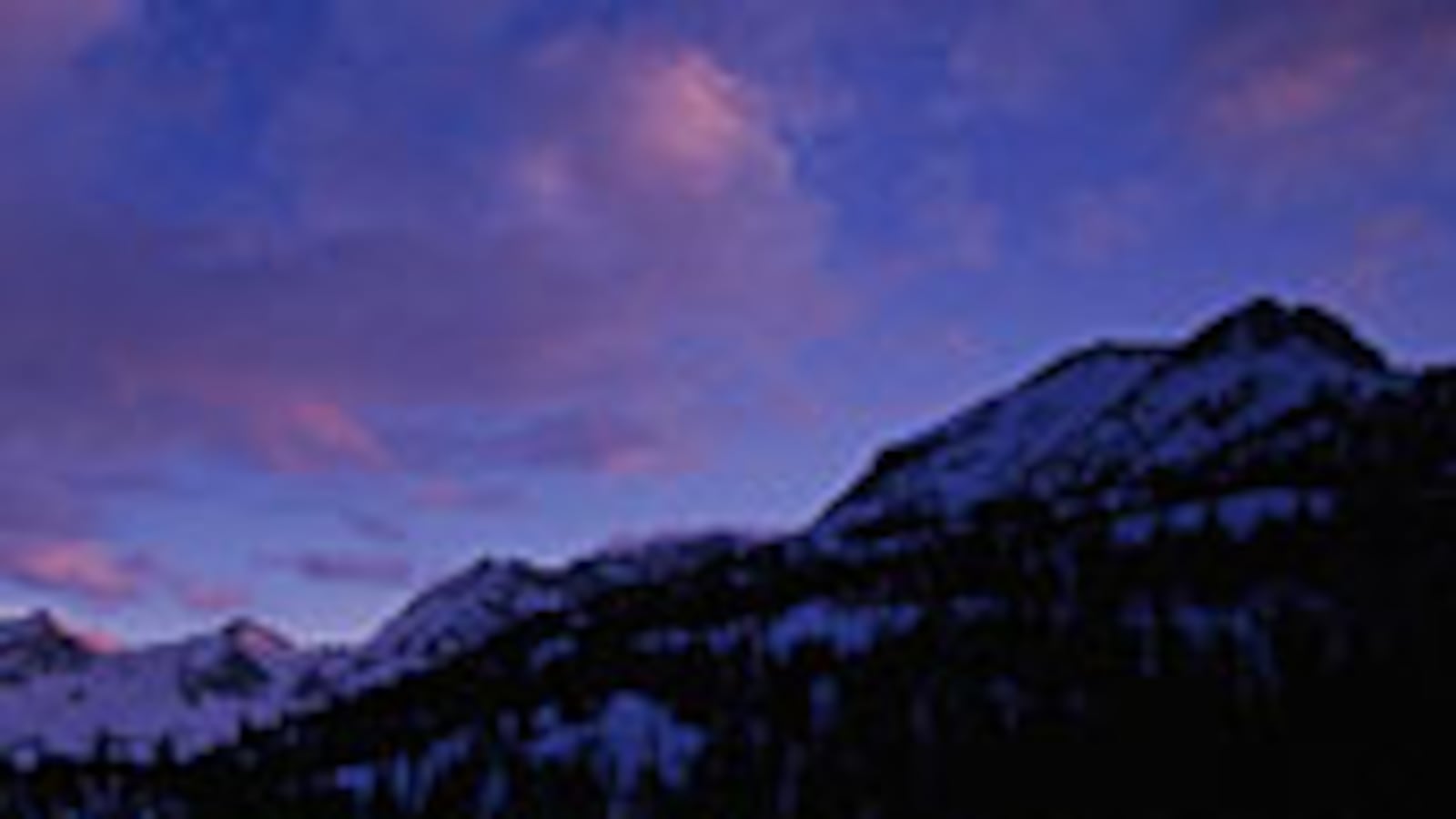
Patriots predicted a financial meltdown and the ensuing chaos. Now it’s a bestselling manifesto. Survivalist James Wesley, Rawles talks to Sara Nelson from an undisclosed location.
Every once in a while, a book you’ve never heard of by a writer you’ve never heard of comes out of the woodwork to become a bestseller. That was the story with the Tim LaHaye Left Behind novels of the 1990s, and with last year’s The Shack, by William P. Young. Both “faith-based,” and both originally either self- or tiny-house published, these books would never be reviewed by the likes of any of the usual literary suspects and have initially small advertising budgets—but score nonetheless, thanks to passionate word of mouth. This year’s entry in the Where-Did-That-Come-From? Sweepstakes is a 384-page paperback novel called Patriots from tiny Berkeley-based Ulysses Press. Published April 7, the book has already hovered around the top 10 on the Amazon bestsellers list. Nielsen BookScan, which tracks about 75 percent of sales but does not receive reports from Wal-Mart (a store at which Patriots would likely sell well, thanks to its libertarian, survivalist themes), says 1,500-plus copies have sold in its first week.
“I generally recommend that people pick religious people for neighbors because they’re going to be the most law-abiding and trustworthy in a crisis, because they’re God-fearing. If I had a Bahai as a next-door neighbor, I’d feel much safer than someone who was a Marilyn Manson fan.”
What is Patriots, and who is its author, James Wesley, Rawles? (The internal comma is intentional; according to Rawles, an admitted “student of common law,” it’s what he calls a minor affection that distinguishes between his first names, which belong to him, and his family, which “owns” the surname.) According to one Amazon reviewer, Patriots is “one of the best researched books, ever.” Admits another “who’s not a big book reader,” it’s unputdownable. In fact, pretty much the only thing fans of the book seem to squabble over is whether the story of a band of survivors of a collapsed world should be called a novel or a survival guide. Its author, Mr. Comma Rawles, says, “I like to think it succeeds as both. I don’t pretend it’s a literary masterpiece.”

A graduate of San Jose State University with a bachelors in journalism—and a longtime editor at Defense Electronics magazine—Rawles has been writing about survivalism and its many tactics since at least the mid-1980s and this book, which does seem eerily prescient about the current economic crisis, has existed in one form or another (online, self-published, in the author’s head) since the mid-'90s. But it’s really taking off now—the author says that his representative, Tom Clancy’s ex-agent Robert Gottlieb, is negotiating with HarperCollins, for a mass-market paperback version of this novel as well as a sequel; at the same time, and on his Web site, SurvivalBlog.com, he announced that Plume will publish a nonfiction manual: How to Survive the End of the World as We Know It, an instant book to be published, as Rawles says, in August, “aught nine”— or, as the rest of us might say: this summer.
It’s not easy to catch up with Rawles, as he lives in an “undisclosed location, West of the Rockies,” but his publicist at Ulysses Press connected us by phone. Loath as he was to talk about himself or his family—beyond acknowledging that the book is dedicated to his wife, whom he calls the Memsahib, and that he and the Memsahib have an undisclosed number of children, whom they home-school—he was positively chatty about his novel, and the philosophy behind it.
Your book exhibits a very definite philosophy about the world and how we can and should live. Can you describe that philosophy?
My basic philosophy is that we live in a very fragile society, and the recognition of that leads logically to the conclusion that people need to be better prepared than most are. Some people call it “Guns and groceries” survival. You can’t rely on the government’s infrastructure. There are going to be crises, and natural disasters—Hurricane Katrina is a perfect example. People need to be self-sufficient, and have a deep larder—it’s primarily about food storage and water filter for water you’ll have to gather for yourself. For the majority of my readers who either live in the suburbs or the countryside, they can store six months’ or a year’s worth of food. For someone living in a major metropolitan area, they might only have room for two- or three-months' supply of food.
What about the “guns” part of the equation?
I look at guns as any other tool for survival: A gun is an inanimate object that has a purpose, like a claw hammer. You can build a house with it, or bash someone’s head in with it. Its value is in the user. I look at guns as tools, either for self-defense, or as tools for hunting small or big game.
Why do you think the novel has taken off as it has? Do you have a clear sense of who your reader is?
I did originally [when I started writing about this topic] have an idea of who my reader is. But the readership of my blog has changed to the point that it’s really now mass market. I have 135,000 readers on the blog—they’re on every continent but Antarctica. If I had said three years ago that there was going to be an economic crisis triggered by derivatives and that it would bring down the banking empire and even the government, people would have said I was crazy—but that’s exactly what has happened. So, recognizing that these threats are real and manifest has greatly widened the appeal of the novel: Everyone from little old ladies to software programmers in India want to read my book.
Do you think of the book, or your message, as faith-based or evangelical?
It’s not really a religious book, but it does portray a lot of characters who are deeply religious. But it’s not out there proselytizing. I’m not shy about the fact that I’m a Christian, but one of the characters based on a close friend of mine, is an Orthodox Jew.
Still, you make some points about preferring orthodoxy, of whatever particular religion, to people, even Christians, who are not particularly devout.
I think that people should choose their friends wisely. It’s in people’s best interests to associate with people of the same faith. I generally recommend that people pick religious people for neighbors because they’re going to be the most law-abiding and trustworthy in a crisis, because they’re God-fearing. If I had a Bahai as a next-door neighbor, I’d feel much safer than someone who was a Marilyn Manson fan.
Why are you so secretive about your personal life, even down to what area code you live in?
I’m not at liberty to discuss where I live. It’s part of an agreement I made with my wife. I really can’t go into the details. We live in a very remote area. I embrace technology. We don’t live in a cellphone area, but I’m online constantly. We’re just prepared to live off-grid, if the power grid goes down.
Because of the nature of my blog and my novel, I don’t just want anonymity, I need anonymity. I could wake up some morning in the aftermath of some crisis and look out in my barnyard and see five Winnebagos and some TV crews. I don’t want fans of my books to descend on my property, so I have to be perspicacious.
You obviously don’t have a lot of faith in the government to solve the current financial crisis—or pretty much any crisis you can imagine. What do you think of what the Obama administration has been doing so far?
I personally think the government is handling this in the wrong way. They’re attempting to reinflate the asset bubble. What they need is to allow bankruptcy to occur, and there are a lot of malinvestments in the system that need to work their way through the system. Unless that is allowed to happen, government is going to continue to bailout—to the tune of trillions and trillions of dollars—noncredit-worthy organizations.... In the long run those investments are going to bankrupt the country and destroy the dollar as a currency unit.
I think that we’re going to end up like the German Weimar Republic of the 1920s.
Plus: Check out Book Beast, for more news on hot titles and authors and excerpts from the latest books.
Sara Nelson is the former editor in chief of Publishers Weekly and the author of the bestselling So Many Books, So Little Time.






